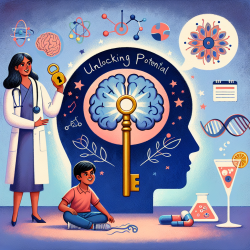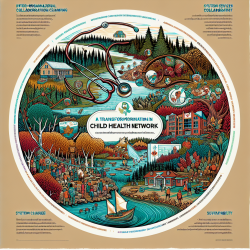Introduction
In the wake of the COVID-19 pandemic, the world saw a dramatic shift towards digital communication. While this shift was necessary to maintain connections during lockdowns, recent research indicates that face-to-face interaction is still crucial for wellbeing. The study titled Digital contact does not promote wellbeing, but face-to-face contact does: A cross-national survey during the COVID-19 pandemic provides insightful data that can guide practitioners in enhancing their skills and approaches.
The Importance of Face-to-Face Interaction
According to the study, face-to-face interactions were found to be positively associated with wellbeing, even during the pandemic. This suggests that while digital communication is a valuable tool, it cannot fully replace the benefits of in-person interactions. Practitioners should consider incorporating strategies that encourage safe face-to-face interactions, especially for young and empathetic individuals who may be more negatively impacted by digital-only communication.
Data-Driven Insights for Practitioners
The research highlights several key findings:
- Face-to-face contact is linked to higher levels of wellbeing compared to digital communication methods like messaging apps.
- Individuals who perceive their household as low-risk for COVID-19 benefit more from face-to-face interactions.
- Younger and empathetic individuals may experience lower wellbeing with increased digital communication.
Practitioners can use these insights to tailor interventions that balance digital and in-person interactions, fostering environments where face-to-face contact is feasible and safe.
Encouraging Further Research
While the study provides valuable insights, it also opens avenues for further research. Practitioners are encouraged to explore how different demographics respond to various modes of communication. Understanding these nuances can help in designing more effective communication strategies that enhance wellbeing across different populations.
Conclusion
As we navigate a post-pandemic world, the balance between digital and face-to-face communication will be crucial. Practitioners have the opportunity to leverage these findings to improve outcomes for children and other vulnerable groups. By fostering environments that prioritize face-to-face interactions where possible, we can enhance wellbeing and support healthy development.
To read the original research paper, please follow this link: Digital contact does not promote wellbeing, but face-to-face contact does: A cross-national survey during the COVID-19 pandemic.










